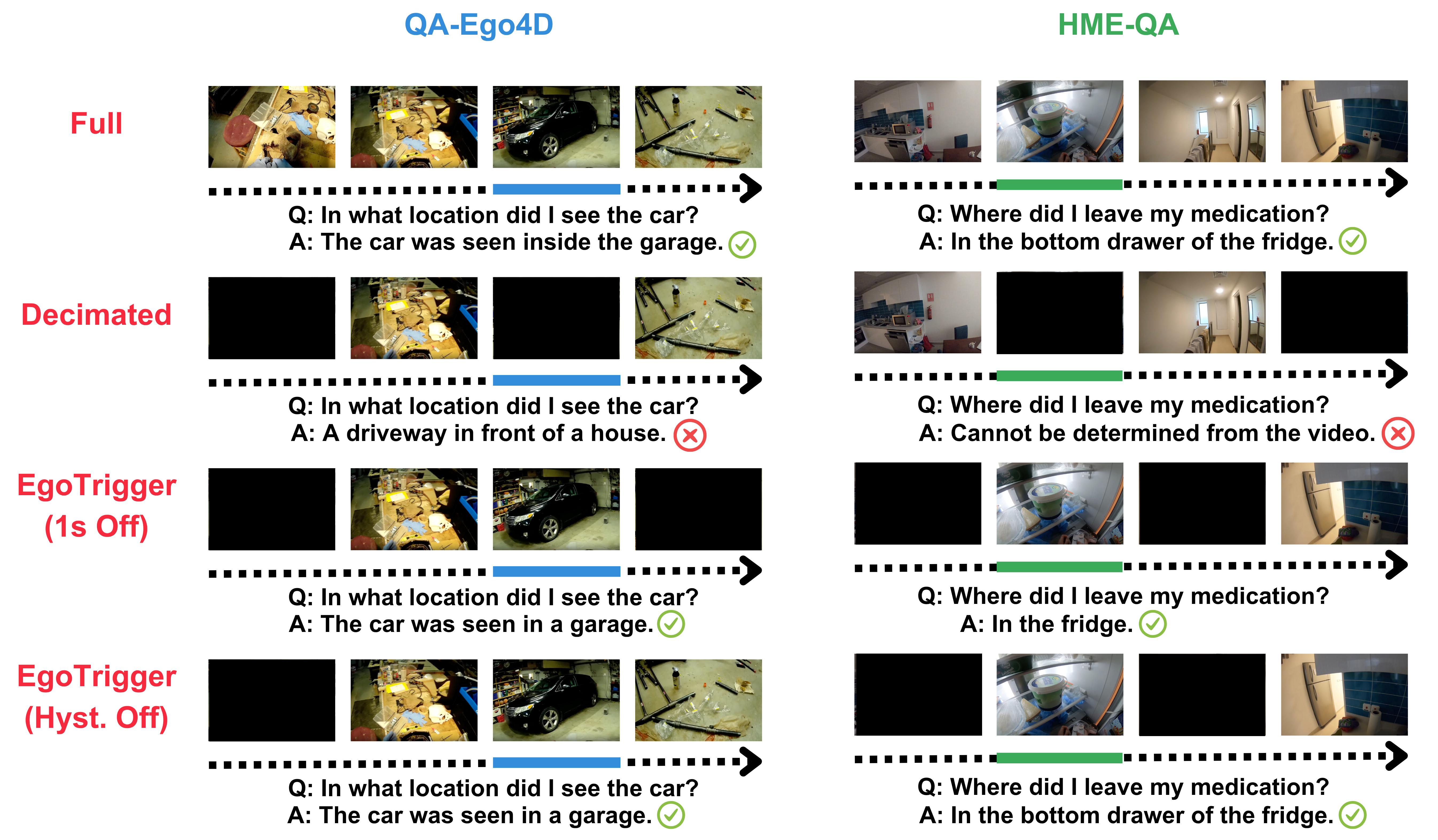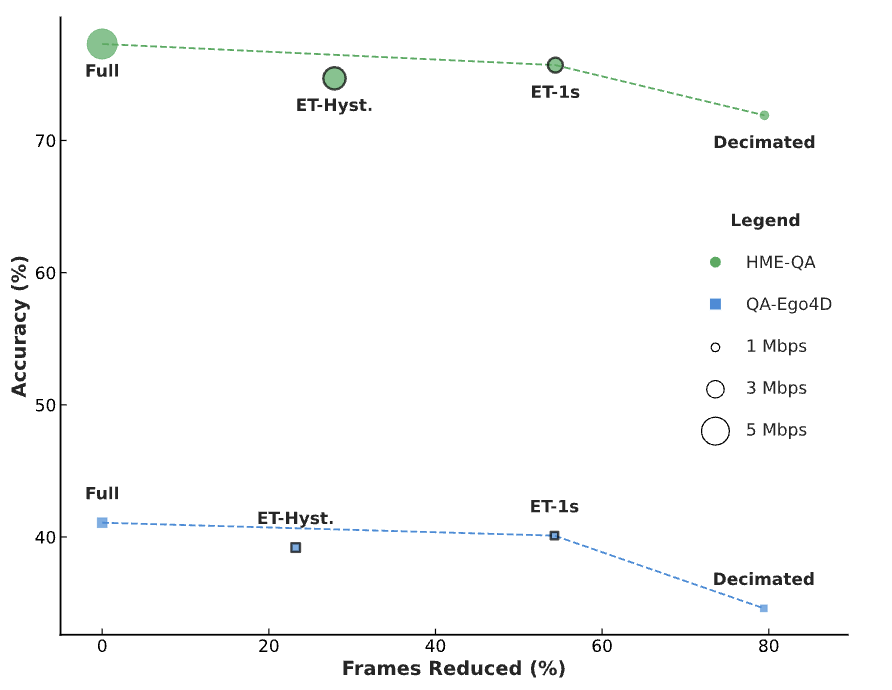EgoTrigger: Toward Audio-Driven Image Capture for Human Memory Enhancement in All-Day Energy-Efficient Smart Glasses
ISMAR 2025
TVCG Journal Paper [Top 8% - 60 of 762 Submissions]
Abstract
All-day smart glasses are likely to emerge as platforms capable of continuous contextual sensing, uniquely positioning them for unprecedented assistance in our daily lives. Integrating the multi-modal AI agents required for human memory enhancement while performing continuous sensing, however, presents a major energy efficiency challenge for all-day usage. Achieving this balance requires intelligent, context-aware sensor management. Our approach, EgoTrigger, leverages audio cues from the microphone to selectively activate power-intensive cameras, enabling efficient sensing while preserving substantial utility for human memory enhancement. EgoTrigger uses a lightweight audio model (YAMNet) and a custom classification head to trigger image capture from hand-object interaction (HOI) audio cues, such as the sound of a drawer opening or a medication bottle being opened.
In addition to evaluating on the QA-Ego4D dataset, we introduce and evaluate on the Human Memory Enhancement Question-Answer (HME-QA) dataset. Our dataset contains 340 human-annotated first-person QA pairs from full-length Ego4D videos that were curated to ensure that they contained audio, focusing on HOI moments critical for contextual understanding and memory. Our results show EgoTrigger can use 54% fewer frames on average, significantly saving energy in both power-hungry sensing components (e.g., cameras) and downstream operations (e.g., wireless transmission), while achieving comparable performance on datasets for an episodic memory task. We believe this context-aware triggering strategy represents a promising direction for enabling energy-efficient, functional smart glasses capable of all-day use -- supporting applications like helping users recall where they placed their keys or information about their routine activities (e.g., taking medications).
Architecture

Key Results


Please refer to our pre-print for the full results, including ablation studies.
Additional Materials
We will release our code and access to the HME-QA dataset annotations through our GitHub repository.
BibTeX
@article{paruchuri2025egotrigger,
title={EgoTrigger: Toward Audio-Driven Image Capture for Human Memory Enhancement in All-Day Energy-Efficient Smart Glasses},
author={Paruchuri, Akshay and Hersek, Sinan and Aggarwal, Lavisha and Yang, Qiao and Liu, Xin and Kulshrestha, Achin and Colaco, Andrea and Fuchs, Henry and Chatterjee, Ishan},
journal={arXiv preprint arXiv:2508.01915},
year={2025}
}